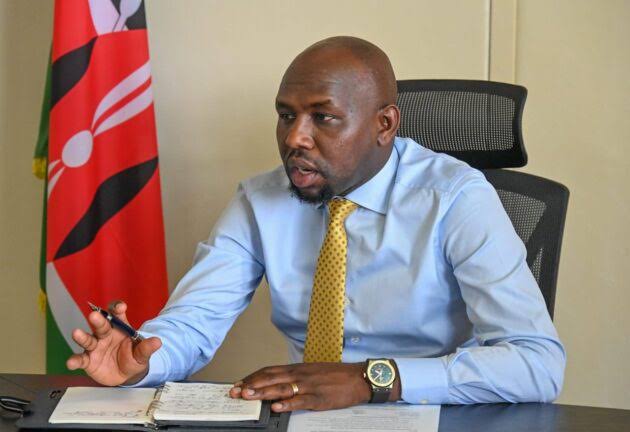
 Interior Cabinet Secretary Kipchumba Murkomen/HANDOUT
Interior Cabinet Secretary Kipchumba Murkomen/HANDOUT Some public officials are now hiding their drinking habits out of fear of being seen by President William Ruto.
Interior Cabinet Secretary Kipchumba Murkomen made the revelation during the launch of a sweeping anti-alcohol policy on July 30.
“Leaders who used to drink freely are now forced to be discreet, especially during retreats or foreign trips,” Murkomen said.
He added that the President’s personal stand on sobriety has made alcohol use among senior officials less acceptable.
“The President takes this issue very seriously, maybe because he is a teetotaller,” said Murkomen.
According to the CS, the government’s tough stance is more than just policy—it’s a cultural shift aimed at saving lives.
“It’s a renewed commitment by the government of Kenya to secure the health, safety, and future of every citizen, particularly our vibrant youth,” he said.
At the heart of the new measures is the 2025 National Policy on Alcohol, Drugs and Substance Abuse, which seeks to raise the legal age for purchasing, consuming, or selling alcohol from 18 to 21 years.
Murkomen, who officially launched the policy, said the government is determined to stop Kenya from sliding into a health crisis due to alcohol and drug abuse.
“We must act to prevent a national crisis,” he warned.
The new policy also proposes banning alcohol sales in supermarkets, restaurants, cafes, toy shops, online platforms, home deliveries, vending machines, residential premises, and public areas such as parks, bus stops, beaches, petrol stations, amusement centres, and sports facilities.
Policy also proposes that consumption of alcohol is also prohibited in many places, including restaurants, hotel dining areas, members’ clubs, and all learning institutions—from nursery schools to universities.
Retail and wholesale alcohol outlets will no longer be allowed to operate within 300 metres of any educational institution.
Only the national government will be allowed to license alcohol manufacturers, importers, and exporters.
All outlets must be fully tax compliant to receive or renew their licences.
Nacada Chairman Stephen Mairori said the policy puts prevention first, improves access to treatment, and ensures that public health, not profit, guides the country’s alcohol control efforts.
“This policy is about putting lives first,” said Mairori.
The new policy marks one of the boldest moves yet by the government to combat harmful alcohol use and protect the country’s youth.

















![[PHOTOS] Betty Bayo laid to rest in Kiambu](/_next/image?url=https%3A%2F%2Fcdn.radioafrica.digital%2Fimage%2F2025%2F11%2F3b166e2e-d964-4503-8096-6b954dee1bd0.jpg&w=3840&q=100)
